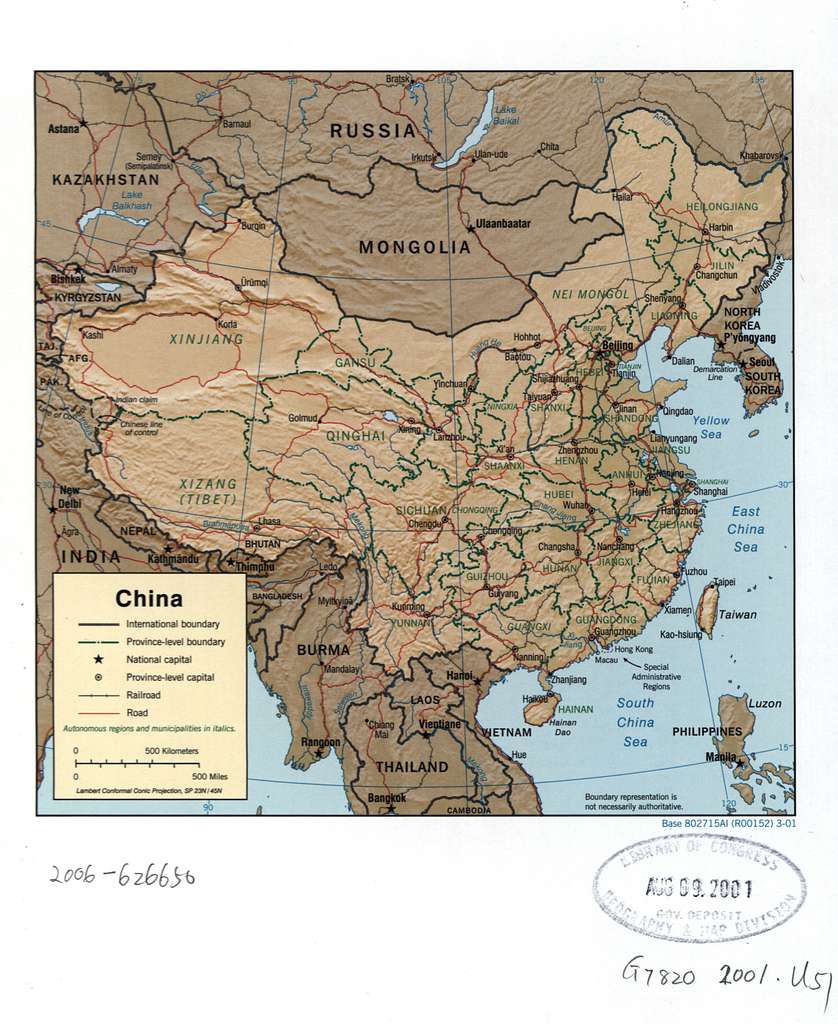China’s profound history, economic prowess, and cultural richness make Mandarin Chinese an enticing language to learn. As the language with the most native speakers in the world, Mandarin connects you to over a billion people, presents robust career opportunities, and provides deep insights into one of the world’s earliest civilizations.
Additionally, learning Mandarin can stimulate cognitive development, as it uses a unique system of symbols and tones, challenging the learner’s brain in new and exciting ways. This article will look into the numerous reasons that make Mandarin a beneficial and intriguing language to learn.
Where is Chinese spoken?
Chinese is spoken across China and among regions around the world like Taiwan, Hong Kong, and where overseas Chinese people have emigrated. The Chinese language has many dialects, with Mandarin being the most spoken and the official language in both the People’s Republic of China and the Republic of China (Taiwan).
What are the benefits of learning a second language?
It’s not just Mandarin — learning a second language is an upgrade for your brain power that lasts a lifetime. Becoming multilingual improves various cognitive abilities, including problem-solving, multitasking, and memory. A study published in the journal “Cerebrum” found that bilingual individuals outperformed monolinguals in tasks requiring attention, inhibition, and short-term memory.
Not only does language learning offer cognitive benefits and enhanced brain function, but it also opens a portal to explore cultural nuances, traditions, and perspectives outside your own. So buckle up, get your dictionaries ready, and embark on this multilingual journey!
11 Major Benefits of Learning Chinese
1. Travel to China and Interact with the Local Population
With a firm grasp of Mandarin under your belt, traveling through China becomes less of a guessing game and more of an immersive adventure. No more will you stand paralyzed in front of a menu, wracked with indecision and haunted by past culinary missteps. Was that mystery dish you ordered last time chicken…or jellyfish? Who knows? But with your newfound language skills, you’ll be ordering local delicacies like a pro. You’ll impress the socks off local vendors with your flawless pronunciation of “Xièxiè” (Thank you) and “Nǐ hǎo” (Hello).
Ever tried to navigate the labyrinth-like streets of Xi’an without resorting to charades with locals? Well, learning Mandarin is your golden ticket! It’s the key that unlocks these real, authentic experiences during your travels in China. And if you get lost, you can just ask!
And there’s more! Imagine breezing through China’s ancient landmarks, such as the Great Wall and the Forbidden City, engaged in deep, meaningful conversation with the locals. You can ask them all about the rich history and cultural significance of these places, and all without the trusty tour guide you’ve been shackled to in the past.
Lastly, think about the unique, bona fide connections you can create with the local population. You could share a laugh over a game of mahjong in a bustling Beijing park, or discuss profound philosophical concepts drawn from Confucianism or Taoism. By speaking their language, you’re not just another tourist — you’re a friend, an explorer, a lifelong learner who’s taken the time to immerse themselves in a new and beautiful culture.

2. Make Friends Using the World’s Most Spoken Language: Communicate with a billion people
Mandarin Chinese isn’t just a language, it’s a social superpower! It’s the most widely spoken language in the world by more than 900 million native speakers, and not just in China. (The rest of the 1.3 billion Chinese people may not speak Mandarin, but they understand the communal written language.)
Imagine walking into a bustling room full of strangers, but wait, these strangers all speak Chinese, and so do you. Suddenly, the room isn’t so intimidating, and you feel a bit like a superhero.
With your trusty Mandarin skills, you can debate the merits of bubble tea flavors, bond over your shared love of Jackie Chan movies, or engage in lively discussions about the latest Chinese pop music hits. The room is now full of potential friends, network connections, and not to mention — karaoke nights with your flawless rendition of popular Chinese songs. Get ready to broaden your social horizons, one Mandarin phrase at a time. You’re not just learning a language; you’re setting the stage for innumerable friendships and fantastic adventures!
3. Gain a competitive advantage in your career
In this rapidly globalizing world, adding Mandarin to your resume is akin to Mario nabbing a power-up in his quest to rescue Princess Peach. Suddenly, you’re not just an ordinary job applicant; you’re a linguistic warrior, armed with the ability to converse in the language of the world’s second-largest economy!
Chinese companies are expanding worldwide, and some Western companies are also looking to establish a presence on Chinese soil. So, imagine this: You’re sitting in a job interview, and the interviewer’s eyes light up as you casually mention your Mandarin fluency. Chinese speakers get a leg up in the rat race for job opportunities.
The next thing you know, you’re jet-setting to Shanghai, negotiating big deals over dim sum, impressing your Chinese clients with your Mandarin prowess. Now, who’s the boss? You, my friend. With Mandarin in your toolkit, you’re not just ready for the global marketplace. You’re ready to dominate it!
4. Discover Chinese Culture
From striking up a conversation with a friendly shopkeeper in Shanghai, to reading ancient Buddhist scriptures at a temple in Tibet, knowing Mandarin enriches your Chinese adventure. It’s like wearing a special pair of glasses that reveal the hidden textures, colors, and stories of the country.
So, if you’re an aspiring Marco Polo or just want to order your dim sum like a pro, learning Mandarin Chinese is the way to go. Not only will it save you from any potential rubber ducky fiascos, but it will also immerse you in an entirely new world of cultural revelations. You will be able to delve deeper into Chinese literature, music, cinema, and philosophy – all of which are essential pieces to understanding the cultural fabric of this ancient civilization.
Proficiency in Mandarin allows you to appreciate the subtleties and nuances of Chinese customs and traditions, and provides a more profound connection to its people and their way of life. So, get ready to master Mandarin and open the door to a wealth of cultural experiences and adventures that await you in the fascinating world of China!
5. A variety of delicious Chinese food

Marveling at the wide range of Chinese cuisine is a fascinating experience in itself, but being able to comprehend Mandarin takes the gastronomic journey to an entirely new level. From Szechuan’s fiery hotpots to Canton’s delicate dim sum, each dish narrates a unique tale of regional history, local produce, and traditional cooking techniques.
As a Mandarin language speaker, you can converse directly with local sellers, chefs, and food aficionados, unlocking the stories behind each delectable bite. You can read menus in their original format, bypassing flawed Chinese translations, and order food with the confidence of a native speaker.
6. Enjoy Chinese movies, TV shows, and music authentically
Watching Chinese language dramas can offer an enriching insight into the culture, traditions, and the language itself. Nowadays, numerous streaming platforms provide access to a vast array of Chinese television series and movies. Platforms like iQIYI, Youku, and Tencent Video host a broad range of content, from historical dramas to modern rom-coms.
However, Chinese is a different enough language that sometimes you might have a different viewing experience because of subpar translations. Subtitles, while helpful, may not fully capture the nuance and cultural context inherent in Mandarin. Certain phrases, idioms or humor might lose their essence when translated literally into English, resulting in viewers missing out on the depth of the dialogue or the plot. Proficiency in Mandarin significantly enhances the viewing experience, allowing you to appreciate the narrative as the creators intended.
7. Chinese is helpful in other countries
Even if you’re not in a primarily Chinese-speaking country, many Chinese people are overseas. You might find that you can build stronger relationships with Chinese co-workers and friends.
While living in Korea, we found that many people in the service industry spoke Chinese, and so even without Korean proficiency, I could communicate better in Korea.
The Japanese language uses some Chinese characters, which can also help a Chinese-speaking individual get around the country.
8. Impress people -the challenge of mastering Mandarin Chinese
Mastering Mandarin is a journey that presents its own unique set of challenges. Often regarded as a difficult language to learn, especially for English speakers, Mandarin’s complexity lies in its tonal system and vast array of characters. The language boasts of four tones, and the meaning of a word can change dramatically based on the tone in which it is spoken. Moreover, there are thousands of characters to be learned, each with their own pronunciation and meaning. This complexity is what makes Mandarin a tough language to master.
However, the effort put into learning Mandarin doesn’t go unnoticed. In fact, Chinese people are often deeply impressed when non-native speakers take on the hefty task of learning their language. Speaking Mandarin, even at a basic level, demonstrates a genuine interest and respect for Chinese culture and its people. It is seen as a testament to your dedication and perseverance, qualities highly admired in Chinese society. As a result, fluency in Mandarin can open doors to deeper connections and richer experiences, earning you respect and admiration from your Chinese counterparts. So, while Mandarin may indeed be a challenging language to learn, the rewards it brings make every step of the journey worthwhile.
9. Learning Mandarin is good brain exercise
Bilingual individuals have improved cognitive abilities, including executive control functions like switching attention and working memory. Children, adults, and older individuals who know more than one language have demonstrated these advantages.
The world of Mandarin is like a giant dumpling, waiting to be savored. Yes, it can be a tough nut, or rather, a hard dumpling to crack, but remember, every character you master is like finding a delicious prawn inside! The journey of learning Mandarin might seem like climbing the Great Wall, but hey, the view from the top is always worth it, right?
Plus, you’re not alone! There are millions of fellow Mandarin-learners around the globe, climbing their own walls. Remember, you’re not just learning a language, you’re unlocking an ancient civilization, one character at a time. Enjoy the ride, and happy learning!
10. Personal Growth

Learning Mandarin is like climbing the Great Wall of China – it can be a long, winding, and uphill journey, and there might be times when you question your sanity. Just when you’ve climbed one tower, puffing and panting, you see an endless line of towers stretching ahead. That’s exactly how it feels when you’ve finally grasped the four tones, only to realize there are some thousands characters waiting for your attention! But hang on, didn’t they say the journey of a thousand miles begins with a single step?
Mastering Mandarin isn’t just about learning a new language; it’s about building resilience and patience. There will be days when your tongue refuses to twist into the right tone, and the characters look more like secret alien codes. But remember, Rome wasn’t built in a day, and neither is Mandarin learned overnight.
This journey is less of a sprint and more of a marathon, or should we say a Great Wall-athon? So, take a deep breath, sip some Oolong tea, and embrace the challenge. Remember, every formidable wall is climbed one step at a time.
11. Learning Chinese is not as hard as you think
Most people have a tendency to build things up in their heads into a bigger deal than it actually is. Why learn Chinese when it sounds so difficult! Despite the myths and horror stories you might have heard, learning Chinese is not like trying to decode the enigma of Sphinx – it might not be as hard as you think!
The trick lies in embracing the language, not wrestling with it. Think of it as your friendly neighborhood dragon – yes, it might breathe fire now and then, but hey, who doesn’t love a BBQ?
Chinese grammar, for one, is a piece of mooncake! It has no verb conjugation (yes, you read that right!), no tenses, and no plurals. So, you can say goodbye to those pesky grammar rules that haunt the learners of many other languages.
What about the characters, you ask? Yes, they can seem like intricate tattoos, but guess what? You only need about 1,000 of the most commonly used ones to understand 90% of the Chinese used in daily life. That’s less than the number of cat videos you likely watch in a year!
Finally, let’s not forget the beautiful, melodious tones of Mandarin. Think of yourself as a conductor when you speak Chinese, leading a symphony of words. A little rise here, a dip there – you’re not just speaking, you’re creating music!
Online Resources Make Learning Mandarin Easier than Ever
In the age of the Internet, learning Mandarin is just a click away! There are boatloads of online resources out there that make mastering the Chinese language as easy as ordering take-out on your phone.
Remember those days when language learning meant lugging around a hefty dictionary and struggling with cassette tapes that loved to misbehave just when you’d mastered the rewind button? Those days are gone! Today, you just need a smartphone, laptop, or tablet, and voila! You’ve got a virtual classroom accessible 24/7.
From interactive apps that’ll have you singing Mandarin nursery rhymes in the shower, to online courses featuring tutors so friendly you’d invite them to your New Year’s bash,(not to mention fun Chinese podcasts!) the resources are endless. You could master the 4 tones of Mandarin while waiting for your morning coffee, or pick up new vocabulary on your evening commute.
Plus, who can forget the myriad of YouTube tutorials? There’s nothing like learning how to pronounce a tongue twister from an enthusiastic vlogger with a knack for hilarious metaphors. And if you’re feeling adventurous, you could even dive into the world of Chinese social media. Before you know it, you’ll be trading memes with netizens on Weibo and watching viral Douyin (TikTok) videos like a true local!
The digital Mandarin treasure trove awaits! Just remember, while eating mandarin oranges might boost your vitamin C, it, unfortunately, doesn’t improve your Mandarin skills. But with a range of online resources at your fingertips, you’ll be chattering away in Mandarin before your next batch of oranges arrives from the grocery store. Happy learning!
Should You Learn Chinese?
So — why learn Chinese? Learning Mandarin isn’t just about wrapping your tongue around new sounds or decoding alien-like characters. It’s a journey of personal growth, resilience, and discovering that your brain can, in fact, master four tones (take that, high school music teacher!). The benefits of learning Chinese range from cognitive to social, and you can build Chinese skills with a bit of hard work.
So, to answer the question, “Should you learn Chinese?” Well, does Peking Duck taste amazing? Is the Great Wall long? Do pandas look adorable while munching bamboo? (Hint: The answer to all of these is a resounding “yes”). So, don your explorer’s hat, warm up your vocal cords, and dive headfirst into the Mandarin adventure. Yuanlu zaiqian! The journey is ahead!

